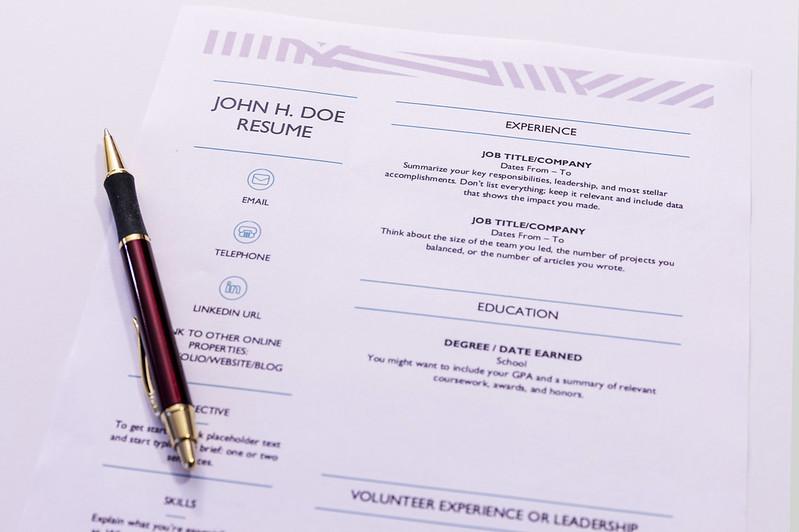A release manager is essential in all software business as this person coordinates and manages the release of products. But how to become a release manager?
Let’s discuss the steps to becoming a successful release manager, including the necessary skills, relevant degrees, and essential work experience. You will know more about your career path after reading this!
Who Is A Release Manager?
A release manager is a key figure in software development and IT operations responsible for planning, coordinating, and overseeing the release of software or system updates.
Their primary role is to ensure a smooth transition of new features, bug fixes, or improvements from the development and testing phases to the distribution.
Release managers work closely with cross-functional teams, including developers, quality assurance, product managers, and system admins, to define release schedules, manage dependencies, and mitigate potential risks.

What Does A Release Manager Do?
To help you visualize this job more clearly, here’s a breakdown of what I, a release manager, do:
- Planning: I work with different teams to decide when and how new software or updates should be released.
- Coordination: I track the progress and make sure everyone involved knows their part and works together smoothly.
- Risk management: I spot possible problems during the release process and come up with ways to solve them before they cause trouble.
- Documentation: I write down all the vital details about the release, like what’s in it and how to install it.
- Quality check: I work closely with QA teams to ensure thorough testing of software updates to catch and address bugs or issues before deployment.
- Deployment: I help put the new software into action on systems.
- Monitoring: I keep an eye on the software after the release to make sure nothing goes wrong.
- Security: I ensure the release is safe from hackers and follows the rules.
- Calendar: I keep a schedule of all the releases so they don’t clash or cause problems.
I’m the person who makes sure that when we release new software, it goes smoothly, works well, and doesn’t cause any headaches for our team or users.
Essential Skills
Regarding vital skills, you need good project management, organization, problem-solving skills, and more to do this job well.
- Project management: You must know how to plan and coordinate software releases to meet deadlines and objectives.
- Clear communication: You must be good at explaining things to others and listening to what they say.
- Leadership: Release managers to lead teams and keep them motivated.
- Being organized: You must be great at keeping things in order, like schedules and documents.
- Problem-solving: You should be able to figure out what’s gone wrong and find ways to fix it.
- Basic tech knowledge: While not an expert, you should understand the basics of the software you’re working with.
- Adapting to change: The software world changes a lot, so you should be open to learning new things.
- Attention to detail: You must be very careful and not miss any small things that could cause problems.
- Time management: You should be good at using time wisely to meet deadlines.
How To Become A Release Manager
Don’t know where to start to become a release manager? Do not worry! The following steps will give you a clear roadmap for this career!
1. Earn A Bachelor’s Degree
Becoming a release manager usually starts with getting a Bachelor’s degree in computers and technology to learn the basics of making computer programs, for example:
- Computer Science
- IT
- Software Engineering
When choosing a college, remember to set your goal by considering what you want to do in the long run. Ensure the program you pick matches what you want to do in software development and release management.
While in college, take classes that teach you more about making software and testing it. Some options include quality assurance, project management, and managing databases.
In this stage, try to do your best in your classes because this can help you get internships and entry-level jobs in software development, which give you real-world experience.
Remember, getting a Bachelor’s degree is just the start. You must continue learning in the following steps to apply for this position successfully.
2. Gain Initial Experience

After you finish your Bachelor’s degree, you need to get real-world experience in the field, especially software development, before aiming for a release manager job.
I recommend looking for junior software engineering or junior software developer roles. These positions let you use what you learned in college and start working on real software projects.
Otherwise, you can apply for internships in software development. They’re on-the-job training and help learn from experienced pros while getting practical skills.
While you’re working, pay attention to experienced software developers. Watch how they work, solve problems, and talk with their team to see how software development happens in the real world.
Besides, check out common issues during software projects to understand what can go wrong and how to fix them, which is vital for a release manager.
As you work on different projects, keep a record of what you’ve done. This portfolio shows employers what you can do and helps you stand out.
3. Hone Skills

College is a golden time to develop soft skills (teamwork, communication, problem-solving, etc.) because you come into contact with many people at different levels, from classmates to lecturers and industry experts.
Besides, keep learning about technology by understanding how software works and staying updated on new things in software and release management. Technology evolves, so staying in the loop is essential.
Project management is also crucial. So, take time to learn how to run projects well. This skill will help you keep releases on track.
Also, work on your leadership and teamwork abilities by learning to lead teams and work well with others. As a release manager, you’ll guide your team and need them to work together smoothly.
4. Build A Network

Creating a good network of professional connections is essential as it makes you a better manager by giving you support and resources. Here’s how you can create one:
- Become a member of groups related to your field, like tech or project management associations. Go to their meetings and conferences to meet people who can help you.
- Get involved in online forums, social media groups, and LinkedIn.
- Look for someone experienced to guide you (a mentor), like a seasoned release manager. They can give you advice and help you on your career path.
- Build good relationships with your current and past co-workers. They can offer advice, recommend you for jobs, or even work with you on projects.
- Get involved in open-source projects to improve your skills and meet other developers and professionals.
These tips will help you connect with industry experts. Yet, to maximize the benefits of your network, contribute your best to those relationships. You will get back what you give!
5. Get A Master’s Degree

Management levels often require a Master’s degree or higher because you will have many responsibilities at work. When picking one, ensure the program covers vital topics for release management. Here are some options:
- Project management
- Software testing
- Quality control
Today, many colleges offer part-time Master’s programs to facilitate you keep working while you study. So, if you want to balance your job and education, I recommend this option.
6. Build Your Resume
Next, you need a resume to show your degrees, skills, and achievements, increasing your chances of securing job interviews.
A well-crafted resume sets you apart from other candidates and highlights your suitability for the desired role. Here are my tips to build a good one:
- Contact info: At the top, put your name, phone number, email, and LinkedIn profile so employers can reach you easily.
- Summary: Write a short intro about yourself. Say what you want in your career and talk about your skills for release management.
- Education: List your degrees, when you finished, and any special certifications or awards.
- Work history: Talk about your jobs, starting with the latest one. Focus on jobs related to software, project management, or quality control.
- Skills: Make a section for your technical and soft skills. Include project management, software testing, and any tools or methods you know, like Agile or DevOps.
- Certifications: List any special certifications you have, like Certified ScrumMaster or ITIL.
Be really careful in this step because a good resume helps you make a great first impression on employers. It shows them you have the skills and experience they want in a release manager.

7. Apply For Jobs
Now, you are ready to apply for the release manager position. Before applying for jobs, ensure your resume is clear and shows your skills and experience.
To find jobs, you should check job websites, company sites, and your network. Then, change your resume and cover letter for each job to match your skills with what the job needs.
After applying, be ready for interviews. If the company is interested in hiring you, they may extend a job offer. Carefully review the terms, including salary, benefits, and job duties, before accepting or negotiating.
Once onboarded, you’ll officially begin your journey as a release manager, working on coordinating and overseeing software releases within the company.

Tools for Release Managers
Release managers rely on vital tools to do their job effectively. Here are three crucial ones:
- Jira helps organize release plans, tracks progress, and manages tasks. It keeps everything neat and on schedule.
- Confluence works closely with Jira. It’s great for keeping documents in one place and helps teams collaborate. I use it to keep release information and workflows organized.
- Analytics tools (Google Analytics or Mixpanel) collect user data after a release. I use this data to see how well a release is doing, find problems, and make decisions.

Salary and Job Outlook
Release managers have a good salary, with a total pay range typically falling between $120,000 and $185,000 per year, with the most likely salary being around $145,000 annually.
Regarding the outlook for release managers, it is promising, with a projected job growth rate of 21% from 2018-2028. This figure indicates a strong demand for pros in this field, driven by the increasing reliance on software in various areas.
As a result, an estimated 284,100 jobs for release managers are expected to emerge over the next ten years.
Where Does A Release Manager Work?
Release managers can work in various fields, mainly in software and IT. They are needed in both big corporations and small startups, as well as in government agencies. You’ll find them in:
- Tech companies
- Software firms
- IT departments of different businesses, including finance, healthcare, and e-commerce.
As software updates become more critical, release managers are essential in many workplaces. Their job is to ensure software releases go well, no matter where they work.

FAQs
Who Should Be The Release Manager?
Anyone with a background in software or IT can be a release manager. It’s good for people who pay attention to details, solve problems well, and can work with different teams.
Is Release Management A Good Job?
Yes, it’s a good job. It offers many chances to grow and a high salary, and you get to work with technology and manage projects.
What Is The Most Vital Skill A Release Manager Needs?
The most vital skill is project management. It helps release managers improve the release process and keep track of how projects are going.
How Do Release Managers Advance in Their Careers?
You can start with software jobs and move from entry-level to software developer. After enough experience, you can get into release management roles.
Conclusion
This career guide has offered a clear path for those aspiring to become release managers.
In short, to complete this path, you need to get these things: degrees, software experience, skills, and a strong network.
Of course, there will be challenges along the way. But believe me! The rewards and stability of the job make it an attractive career choice!
